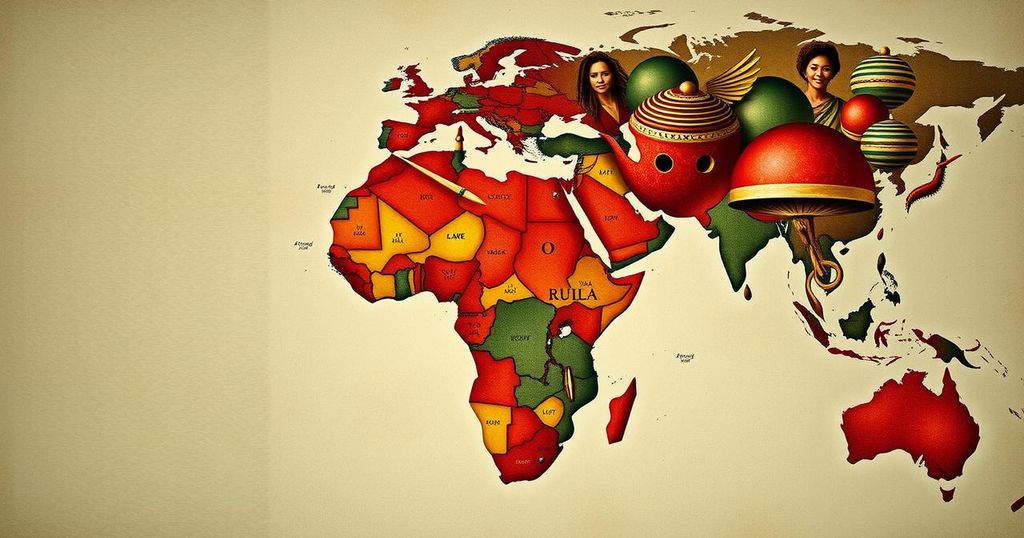Africa Grapples with Severe Crises in 2024: Urgent Call for Action
In 2024, Africa faced severe challenges, including climate change, mpox outbreaks, migrant deaths, and armed conflicts, affecting millions. A dam disaster in Nigeria and severe drought in Somalia exemplified the crises. Experts called for better migration policies and governmental investment in health and security, emphasizing the need for international support for peace and resilience.
In 2024, Africa confronted a series of unprecedented crises, including climate change impacts, migrant accidents, mpox outbreaks, and armed conflicts that collectively jeopardized the lives and livelihoods of millions across the continent. The adverse effects of rising temperatures, droughts, and flooding resulted in significant casualties and displacement. For example, a dam collapse in northeastern Nigeria displaced approximately 400,000 individuals, leading to the tragic loss of at least 37 lives. In Somalia, nearly 6.9 million people require urgent humanitarian assistance, exacerbated by an extreme drought that has rendered the nation the most food-insecure globally according to the 2024 Global Hunger Index.
Furthermore, migrant accidents surged as individuals fled from conflicts and severe economic challenges. Caminando Fronteras, a Spanish migration rights organization, reported over 10,457 migrant deaths by mid-December 2024 as they attempted perilous crossings to Spain by sea. The statistics underscore the critical necessity for safer migration routes and more humane border management practices.
In addition to these hardships, Africa has also experienced a resurgence of mpox cases. The World Health Organization has identified the outbreak in the Democratic Republic of the Congo as a public health emergency of international concern, with reports indicating over 1,300 suspected fatalities due to the disease.
Amidst these pressing issues, the continent continues to grapple with persistent armed conflicts that have resulted in thousands of deaths and widespread displacements, crippling economies and exacerbating humanitarian crises. With over 35 ongoing non-international armed conflicts, nations such as Burkina Faso, Cameroon, and Somalia are facing violence from various armed groups.
Experts, including security and climate researcher Kazeem Olalekan, point out that African governments have failed to fulfill their commitments to address these substantial challenges adequately. He emphasized the urgent need for governments to prioritize the security and welfare of their citizens and to enhance investment in health and safety measures. He remarked, “The governments haven’t done enough in fulfilling the terms of the social contract they willingly entered into with the people.”
The article addresses the multifaceted crises affecting Africa in 2024, spotlighting climate change, health epidemics like mpox, migrant issues, and armed conflicts. In recent years, Africa has increasingly experienced the adverse effects of climate change manifesting as rising temperatures and severe weather events, leading to devastating humanitarian crises. Simultaneously, the continent is contending with health challenges and violence driven by conflicts, making it essential for governments and international bodies to respond effectively to the needs of the populace.
In conclusion, the crises facing Africa in 2024 highlight the urgent need for governments to address climate change, improve health care services, enhance migrant safety, and seek peaceful resolutions to ongoing conflicts. The recommendations from experts stress the importance of prioritizing the welfare of citizens through robust government action and collaboration with international partners. Addressing these challenges holistically is vital for the continent’s future stability and prosperity.
Original Source: www.aa.com.tr




Post Comment